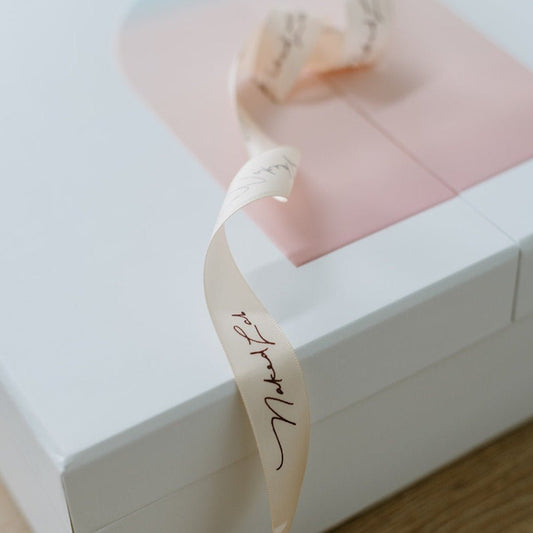
Bamboo vs Cotton: What's the better option for bedding?
Sheets are something everyone uses every single day (or, more accurately, every night). When choosing bedding, there are many factors that need to be considered.
Comfort is of course the main thing people look for when it comes to bedding, which makes sense; the average person spends almost 230,000 hours of their life in bed – that is approximately 26 years! Comfort doesn’t only mean softness though, as temperature regulation and material quality play a huge part in a comfortable night’s sleep.

Cotton and bamboo sheets are both common choices and are readily available. Bamboo is fairly new to the game, whereas cotton, on the other hand, has been a traditional staple for many years. There is much debate surrounding whether bamboo or cotton is the superior choice, and to come to a conclusion, all influencing factors need to be taken into account.
Cotton and bamboo bedding both have their strengths and their drawbacks, like everything, and there are compelling arguments for each. It’s important to look at both independently, in order to be able to accurately make an informed decision.

Cotton sheets
As mentioned, cotton has long been the most common fabric for sheets and bedding. In fact, cotton is one of the most widely used fabrics in the world, with more than 27 million tons of it produced each year. (To put such a large number into perspective, that’s equal to 27 t-shirts for every single person on earth!) Cotton is so commonly used because it is soft, durable, and easy to care for.
There is also no shortage of options when it comes to choosing cotton sheets. The price is usually reflected, however, in the quality of the material used. Egyptian cotton sheets, for instance, are highly rated as some of the most luxurious bedding options available, for their unparalleled softness and durability. At the other end of the scale, however, you have what is simply know as ‘regular’ or ‘common cotton’. It is still soft, but nothing in comparison, and tends to be cheaper, far less durable, and non-organic.
Although no matter what grade of cotton sheets you choose, they’re likely to be comfortable, breathable, and easy to clean, it is important to remember that cotton has another, slightly darker side.
The dark side of cotton
Widely regarded as one of the dirtiest crops around, cotton is far from a sustainable, environmentally friendly choice. With approximately half of all textiles in the world being made from of cotton, a huge amount of space is required, causing acres of land that was originally the natural habit of thousands of plants and animals, to be transformed into land for cotton farming.
Cotton also uses vast amounts of water. It takes up to 20,000 litres (5,283 gallons) of water to produce just 1kg (2.2lbs) of cotton. This makes cotton one of the thirstiest plants on the planet. As well as it’s massive ‘water footprint’, cotton farming also uses huge amounts of ‘agrochemicals’. These are in the form of pesticides and insecticides, while exposing both growers and consumers to toxic carcinogenic chemicals used during production.
So, while cotton seems like the most popular choice, when looking at its environmental impact, it’s clear why alternatives like bamboo are becoming so popular.

Bamboo sheets
Unlike cotton, bamboo sheets are pretty new on the bedding scene, but they do seem to be continually growing in popularity; bamboo bedding does tick the majority of the boxes of what people look for. They’re incredibly soft and thermal regulating, ensuring you don’t overheat while sleeping, arguably making them the more comfortable option. They are fairly similar to high-grade cotton when it comes to breathability and durability. One of the key selling points for bamboo bedding is its sustainability rating.
Chemical-free bedding
Bamboo is one of the fastest-growing plants in the world, with some species growing up to three feet a day! It doesn’t require the use of pesticides, or any other agrochemicals, nor fertiliser or irrigation, both of which are common in cotton farming. This lack of chemical exposure means that bamboo bedding sets are ideal for those with allergies and sensitive skin.
Panda-friendly & environmentally-friendly
A common concern that came to light when bamboo started to become popular for bedding and clothing, was the fact that certain animals, such as the giant pandas, rely on bamboo to stay alive. 99% of a panda’s diet is made up of bamboo, for example. Pandas eat over 25 types of bamboo, mainly arrow bamboo, black bamboo and ‘water bamboo’. The bamboo species used to make fabric is called Moso bamboo, and is not, and cannot, be eaten by pandas. So, bamboo bedding is panda-approved too!
It is important to note that bamboo is of course still a plant-based fabric source that uses water and land to grow. It is, however, far gentler on the environment than any of its counterparts.

Comparison between cotton and bamboo bedding
The difference between cotton and bamboo bedding is clear. While both are soft and both are durable, their environmental impacts couldn’t be more different.
Those who class themselves as eco-conscious consumers are far more likely to opt for Bamboo bedding and sheets.
The price range is also wide; while bamboo bedding sets are typically more expensive than regular cotton options, high quality cotton sheets – such as Egyptian cotton – far outstrip both when it comes to price by a significant margin.
The Breakdown
Durability
Both are very durable and long lasting when taken care of properly. Cotton sheets get softer with age (which can be seen as either a positive or negative depending upon your preference), while bamboo sheets hold their dye better, with colours and patterns remaining vivid.
Comfort
Bamboo bedding is usually smooth and soft, although this is often dependent upon the weave. Likewise, cotton’s comfort is weave-dependant and the grade of cotton used obviously plays a part. Cotton can sometimes start off rougher, but soften significantly after a few washes, while bamboo retains it’s initial ‘silky’ feel for an extended period.
Cost
Cotton sheets vary hugely when it comes to price, and it’s very much a case of ‘you get what you pay for’. They can start very cheap when low-quality cotton is used but can easily increase more than ten times for top-quality, Egyptian cotton products. While no bamboo sheets are as cheap as the low-grade cotton, high-quality bamboo bedding is far more affordable than the highest quality cotton alternatives. The highest quality for the best price is unarguably bamboo.
Temperature Control
Both cotton and bamboo are natural materials, therefore both are very good for temperature regulation whilst sleeping. Some people believe bamboo is a better material for keeping cool and breathability, especially during night sweats, hot flushes, or living in a tropical climate, therefore making it ideal for bedding. On the other hand, there are other who prefer cotton for similar reasons. It tends to come down to whichever you prefer, as both provide temperature neutrality.
Care
Bamboo and cotton sheets are both machine washable and can either be tumble-dried or air-dried. Both are durable and can easily withstand routine washing.
In summary...
When looking at bamboo sheets and cotton sheets, both have their own benefits and drawbacks, but when looked at on the whole, bamboo comes out on top. When it comes to their physical stats, they are fairly equal. Both are durable, temperature regulating and easy to care for. It is more expensive to get luxury when it comes to cotton, but it is a more economical option if you are on a budget. The thing that is impossible to ignore is the two environmental impacts compared. It has been looked at in detail already, but while bamboo bedding can provide you with a comfortable, sustainable, and therefore guilt-free night’s sleep, cotton cannot be guaranteed to promise the same.


